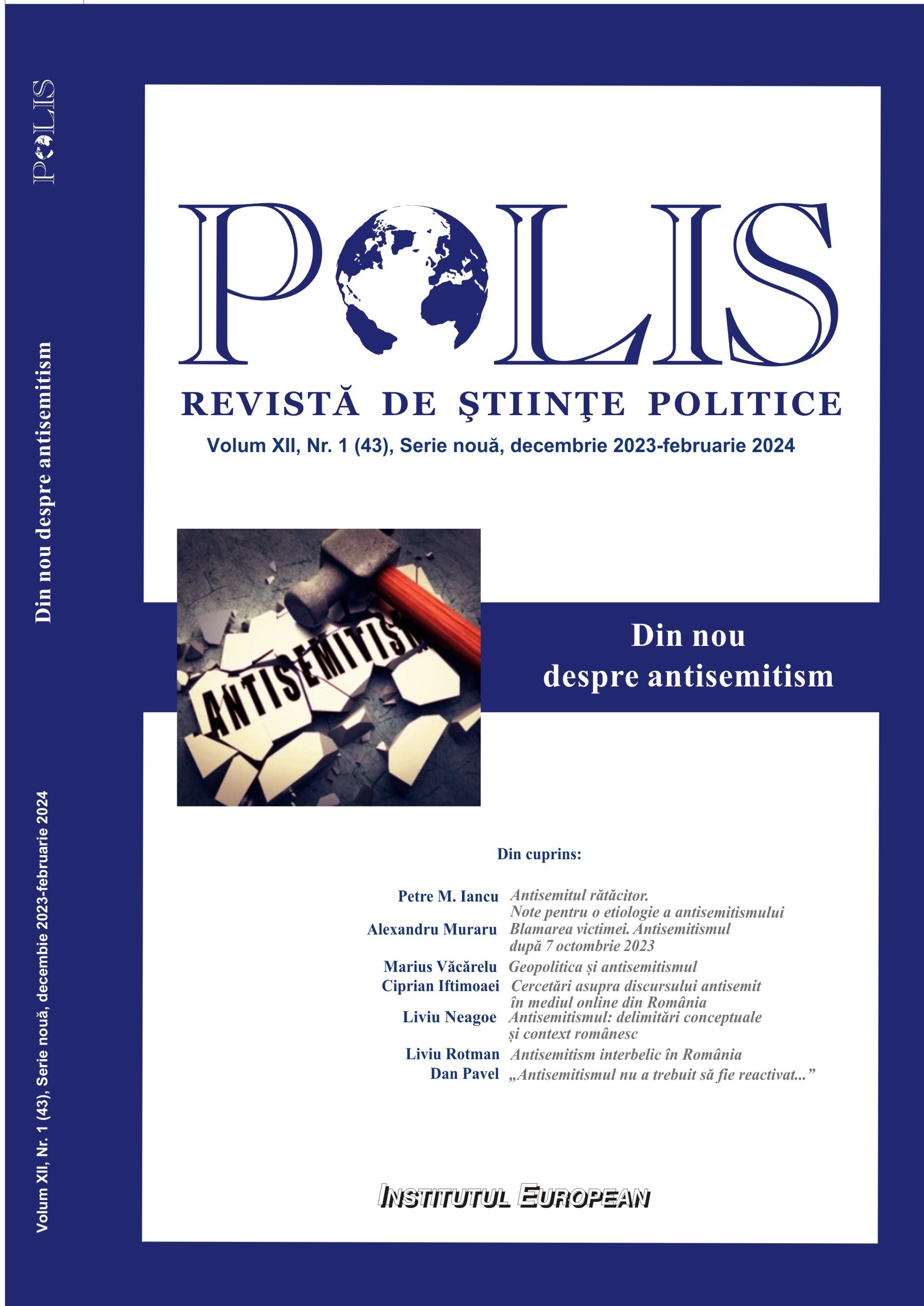Naționalismul adevărat nu exclude democrația bine înțeleasă și nu implică dictatura
True nationalism does not exclude democracy properly understood
and does not imply dictatorship
Author(s): Sabin DrăgulinSubject(s): Politics / Political Sciences, Jewish studies
Published by: Editura Institutul European
Keywords: nationalism; xenophobia; anti-Semitism; Romanian; Romania;
Summary/Abstract: Anti-Semitism, through its forms of expression and the consequences produced, was and is an approach to exclusion that is legitimized by different arguments: racial, ethnic, cultural, political, economic, religious, etc. History shows us that anti-Semitism has deep roots in the history of humanity, it was found on all continents, in more or less radical forms, it had different promoters, but the result was the same: violence of all types, exercised on Jews. The emergence of modern Romania was inextricably linked to liberal nationalism. The adoption of this model was part of the attempt by the modernizing domestic elites to connect to the model promoted by the political regimes in Western Europe that were based on the fundamental values promoted by the French Revolution of 1789 and the European Revolution of Nations of 1848. Anti-Semitism was promoted by a part of the autochthonous intelligentsia throughout the history of the modern Romanian state. The Jews, for ethnic, religious and cultural reasons, were considered a foreign element in the national body. However, anti-Semitism was not the dominant concept in the political culture of the Romanian state, given that the political project of the local liberal elites was completed by the adoption of the 1923 Constitution. Post-war difficulties and external influences allowed anti-Semitism to develop in Romania. However, in the electoral plan, where citizens with the right to vote express their political will, they showed that the Christian National Party and the Iron Guard totalled almost 32% of the total votes, which represents less than 1/3. In addition, at the level of the speech promoted by the democratic intelligentsia, we find a very harsh criticism of the anti-Semitic speech. These elements demonstrate that within the Romanian state there were mechanisms that limited the impact of anti-Semitic movements, their success was represented by the application of anti-Semitic legislation and was achieved only under the conditions of the imposition of the "Carlist dictatorship".
Journal: Polis. Journal of Political Science
- Issue Year: XII/2024
- Issue No: 43
- Page Range: 157-179
- Page Count: 22
- Language: Romanian

